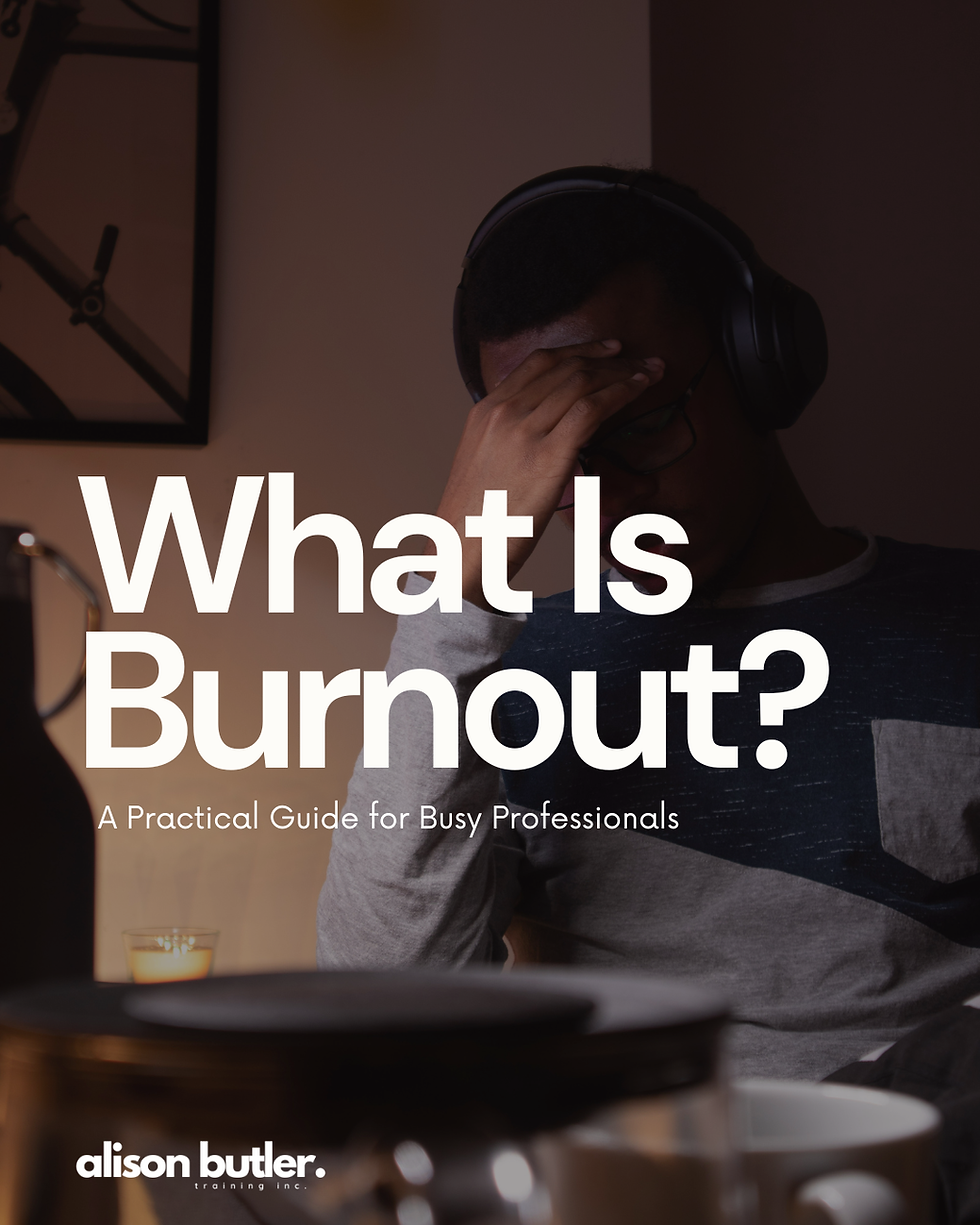Feeling Tired but Can’t Figure Out Why? You Might Need a Different Kind of Rest
- Alison Butler

- Oct 30, 2025
- 3 min read
Updated: Oct 31, 2025
Are you missing the rest you really need?
Have you heard of the 7 Types of Rest?
The concept of the 7 types of rest comes from Dr. Saundra Dalton-Smith, a physician and author of Sacred Rest: Recover Your Life, Renew Your Energy, Restore Your Sanity..
What Are the 7 Types of Rest?
She identifies that true rest goes far beyond just sleep and outlines seven distinct types of rest we all need:
Physical Rest: This includes both passive rest (like sleeping or napping) and active rest (like stretching, yoga, or massage) that helps the body recover.
Mental Rest: This is needed when your mind feels cluttered or overactive. Solutions include taking short breaks during the day, journaling thoughts, or creating mental boundaries from work.
Sensory Rest: Counteracts overstimulation from screens, bright lights, background noise, and multiple conversations. It might mean unplugging from devices or spending time in quiet, calming environments.
Creative Rest: This replenishes your ability to appreciate beauty and inspiration. Time in nature, enjoying the arts, or allowing space for awe can restore creative energy.
Emotional Rest: This involves having the freedom to express your true feelings and stop people-pleasing. It means being honest and surrounding yourself with safe, supportive people.
Social Rest: Balancing draining relationships with restorative ones. It’s about spending time with people who revive you rather than deplete you.
Spiritual Rest: Feeling connected to something bigger than yourself—through prayer, meditation, or community involvement. It brings a deep sense of purpose and belonging.
So, you might be sleeping but your brain and body might be craving a different type of rest altogether.
How to Know What Kind of Rest You Need
When you feel tired despite sleeping or taking breaks, it’s usually a clue that your fatigue isn’t just physical. Here's a simple way to start figuring it out.
Ask Yourself: What Kind of Tired Am I?
Use these questions to help identify where your rest deficit might be:
🛌 Physical
Do I feel worn out, heavy-limbed, or sore? Am I pushing through physical fatigue or ignoring signs to slow down?
💭 Mental
Is my mind racing at night? Do I struggle to focus or forget things easily?
📱 Sensory
Do I feel overstimulated by screens, lights, noise, or crowds? Do I crave quiet or darkness?
🎨 Creative
Do I feel uninspired, stuck in problem-solving, or like I’ve lost my imagination?
💬 Emotional
Am I tired of pretending I’m fine? Do I feel unappreciated or emotionally drained?
👥 Social
Am I constantly “on” for others? Do I feel lonely even around people?
🙏 Spiritual
Do I feel disconnected, unmotivated, or like I’m lacking purpose?
Which one is resonating with you the most right now?
How can you build some time into your schedule to give you the type of rest you need?
Hi, I'm Alison and welcome to the blog.
If you’re constantly “on” and running on low, Resilient is my free weekly email inbox break you didn’t know you needed.
Resilient helps you reclaim your time, set better boundaries, and live with more ease (without guilt). One email. Deep exhale.
Each week, I’ll send you boundary reminders, mindset shifts, and small ways to take your time back.
Be sure to connect with me on IG @alisonbutlernl or on LinkedIn.






Comments